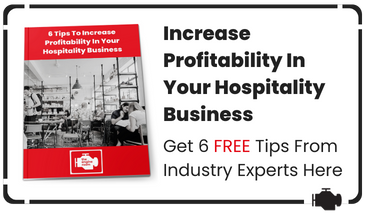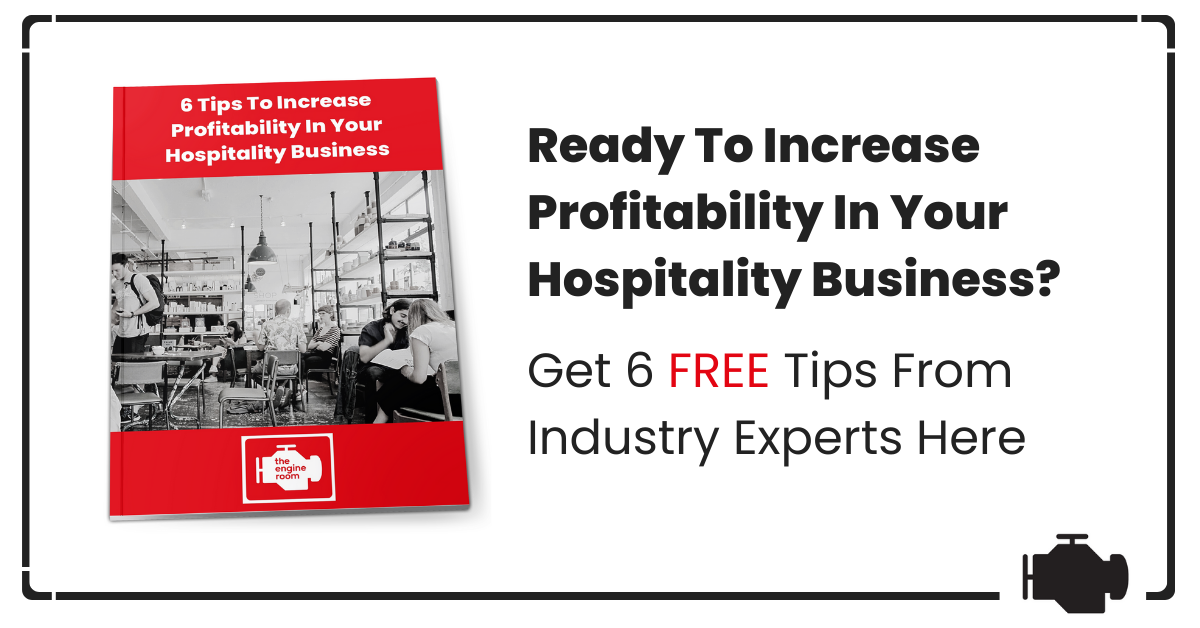A Breakdown of Managing Typical Restaurant Operating Costs

Opening a restaurant requires substantial investment, not just with regards to financial capital but also in terms of time and effort. The ability to effectively understand and manage the breakdown of restaurant operating costs is crucial for sustaining operations and achieving profitability. In this blog we look into the multiple factors that need to be considered when assessing operating costs for your restaurants.
Understanding Fixed and Variable Expenses
To navigate the complexities of restaurant finances, it is essential to distinguish between fixed and variable expenses.
Fixed costs are consistent expenses that do not change with the volume of business. These include rent, salaries, and loan repayments. Fixed costs provide a predictable expense framework that requires payment regardless of business performance.
Variable costs, on the other hand, fluctuate with your restaurant’s productivity. These costs include food supplies, and hourly wages. Managing variable costs effectively means monitoring your business volume and adjusting orders and staffing accordingly to maintain profitability.
Calculating Your Contribution Margin
Cost of Sales (CoS) is the raw material cost of the food and drinks you sell. Your Gross Profit (GP) is the net selling price minus the CoS.
Labour cost is all the expenses includes the cost of hiring your employees such as their wages (salaried or hourly), any employee benefits, payroll taxes and bonuses.
Your Contribution Margin is what your Food & Beverage (F&B) items make after you deduct the variable costs of delivering them. This is your GP minus your labour cost, and any other variables directly attached to the item like a delivery charge or c/c commission. For the business to remain profitable your remaining costs often called Overheads need to be lower than the Contribution Margin.
The Contribution Margin does not cover any costs that are unrelated to the direct production of the products you sell. This means that any supplies, décor, or utility bills do not impact this calculation.
Your Contribution Margin is a very valuable performance indicator because it directly relates to your restaurant’s operational efficiency and profitability. Keeping on top of this helps in making informed decisions about pricing, menu choices, and cost control strategies.
Initial Start-Up Payments
Launching a restaurant involves a series of one-time start-up costs that can significantly impact your initial budget. Considering these thoroughly when building your restaurant business plan protects the sustainability of your business.
The menu is the café’s fundamental identity. Striking a balance between classic café options and unique choices which reflect your brand can enhance the customer experience. Sourcing high quality ingredients and embracing the preferred local flavours will enable you to appeal to a diverse customer base.
Keeping your menu concise to ensure reliability in preparation and service can streamline operations, especially when just opening. The Engine Room offers Menu Engineering services to help in creating an efficient and strategic menu. This involves experimenting, altering, and analysing your menu, which will improve its’ functionality and popularity, over a set period of time, which in turn can increase profitability.
Commercial Space
Securing a location comes with upfront costs like deposits and potentially the first few months’ rents. It’s vital to consider not only the cost but also the strategic value of your selected location. Negotiating lease terms can impact your financial planning; seeking terms that include rent control or contributions towards renovations can reduce initial expenditures.
Renovations can range from minor décor adjustments to complete overhauls. This process often requires professional contractors, interior designers, and potentially architects. Maintaining control over these costs usually requires compromises or phased enhancements to stay within budget.
Appliances & Equipment
Investing in high-quality kitchen and dining equipment is essential for efficient operations and the longevity of your tools. Leasing equipment or purchasing refurbished items can be cost-effective alternatives that do not concede on quality. Additionally, opting for energy-efficient models might come with a higher upfront cost but result in savings in utility costs over time.
Permits & Administration
Obtaining the necessary permits and licences is a fundamental step when opening a restaurant.
Legal requirements can lead to significant administrative costs and vary depending on location, type of cuisine, and the size of the establishment.
Unexpected Expenses
Unforeseen expenses are common in the restaurant industry, especially during the start-up phase. Whether it’s construction delays, unexpected repairs, or last-minute regulatory requirements, it’s wise to allocate a contingency fund to handle these unpredictable costs.
Marketing
Effective marketing campaigns are essential for building buzz and attracting customers ahead of and during opening. Setting aside funds for a launch event can also be a valuable investment to generate interest and create initial foot traffic.
Fixed Costs
Fixed costs are a consistent expense for business and therefore a steady presence in your monthly budget.
Rent
Rent is typically the most expensive fixed cost for a restaurant. The terms negotiated during the lease agreement will dictate monthly expenditures, and it’s important to ensure the rent aligns with expected revenue streams to avoid cash flow problems.
Ongoing Marketing
While initial marketing efforts focus on the launch, ongoing campaigns are crucial for sustained business growth. Regular promotions, maintaining an active social media presence, and community engagement are continuous investments that help keep the restaurant on the mind of customers.
Insurance
Insurance is an essential fixed cost, providing protection against various risks, including the likes of property damage, liability claims, and employee-related risks. Routinely reviewing and adjusting your coverage based on business growth and changing needs is imperative to ensure adequate protection.
Licences
Renewing licences is an ongoing administrative cost. Staying compliant requires not only budgeting for these expenses but also keeping track of renewal deadlines to avoid operational disruptions.
Managing Variable Expenses
Variable expenses can be unpredictable, and require constant reviewing and adjustment based on your restaurant’s performance and market conditions. Though, with careful management, you can control them to enhance your restaurant’s overall efficiency.
Labour
Labour costs represent a significant variable expense in the restaurant industry. This covers costs incurred from wages, overtime, bonuses, payroll taxes, holiday time and sick days.
Controlling your labour costs can be tricky, so checking if your labour costs are similar to industry averages can be an easy way to know how to proceed with managing them. Reducing staff and wages to curb labour costs can be harmful in the long run as they can affect the quality of customer service, therefore you should try to reduce costs by employing longer-term methods.
Ways to Reduce & Control Labour Costs:
- Training your staff to be efficient can enhance productivity and reduce waste.
- Improving employee retention decreases recurring training and hiring costs.
- Aligning staff schedules with customer demand optimises scheduling to avoid overstaffing.
- Audit & Digitise: Implement technology to streamline operations and reduce errors.
Food
Unsurprisingly, food costs are another critical variable expense. These can be the most significant of your costs as they can be affected by many external influences like seasonality, fuel costs and trends. However, there are also internal factors at play, such as the efficiency of an ingredient’s use and how economies of scale impact a certain ingredient.
Monitoring the cost of food can help you predict and track the profitability of your restaurant.
Ways to Reduce & Control Food Costs:
- Regular inventory management audits prevent overstocking and waste.
- Adjusting menu prices based on the cost of goods sold and employing menu engineering techniques can ensure higher profit margins.
- Using multiple suppliers to find the best market price for your ingredients.
- Implementing zero waste practises into your restaurant by way of understanding portion sizes and using creative menu planning minimises waste.
Utilities
Utilities are the necessary expenses for basic restaurant function and includes bills for water, gas, and electricity. Staying on top of your utility costs is incredibly important, as a surprisingly pricey bill might impact your monthly budget more than you would expect.
Ways to Reduce & Control Utility Costs:
- Negotiating package deals to secure favourable rates for services like internet and utilities.
- Eliminating unused subscriptions or services.
- Managing energy consumption by investing in energy-efficient appliances to cut down increased power and water usage.
Software Systems
Technology plays an indispensable role in modern restaurant management, helping to streamline operations from the kitchen to the front of the house. Software-use in a restaurant typically includes Point-of-Sale systems, reservation tools and staff scheduling apps.
Ways to Reduce & Control Tech Costs:
- Researching and comparing vendors to find one which offers you the best variety and highest quality in features.
Automating tasks through software like your POS system can help save on headcount and improve performance. However, aside from picking a reliable and effective system upfront, reducing incurred by software, such as payment transactions or reservations are not a factor that can be constantly analysed to reduce costs.
How can The Engine Room help
Operational costs can be an overwhelming aspect of running a restaurant. Delving into your key calculations like your contribution margins, variable costs, and start-up costs, gives you a more detailed idea of your finances. Understanding these costs properly allows you to implement efficient strategies that can keep these costs under control and your restaurant profitable.
At The Engine Room, we offer restaurant consultancy services to help you optimise both your operations and finances. If you need help managing or understanding your personal operating costs more comprehensively, get in touch with our team.



